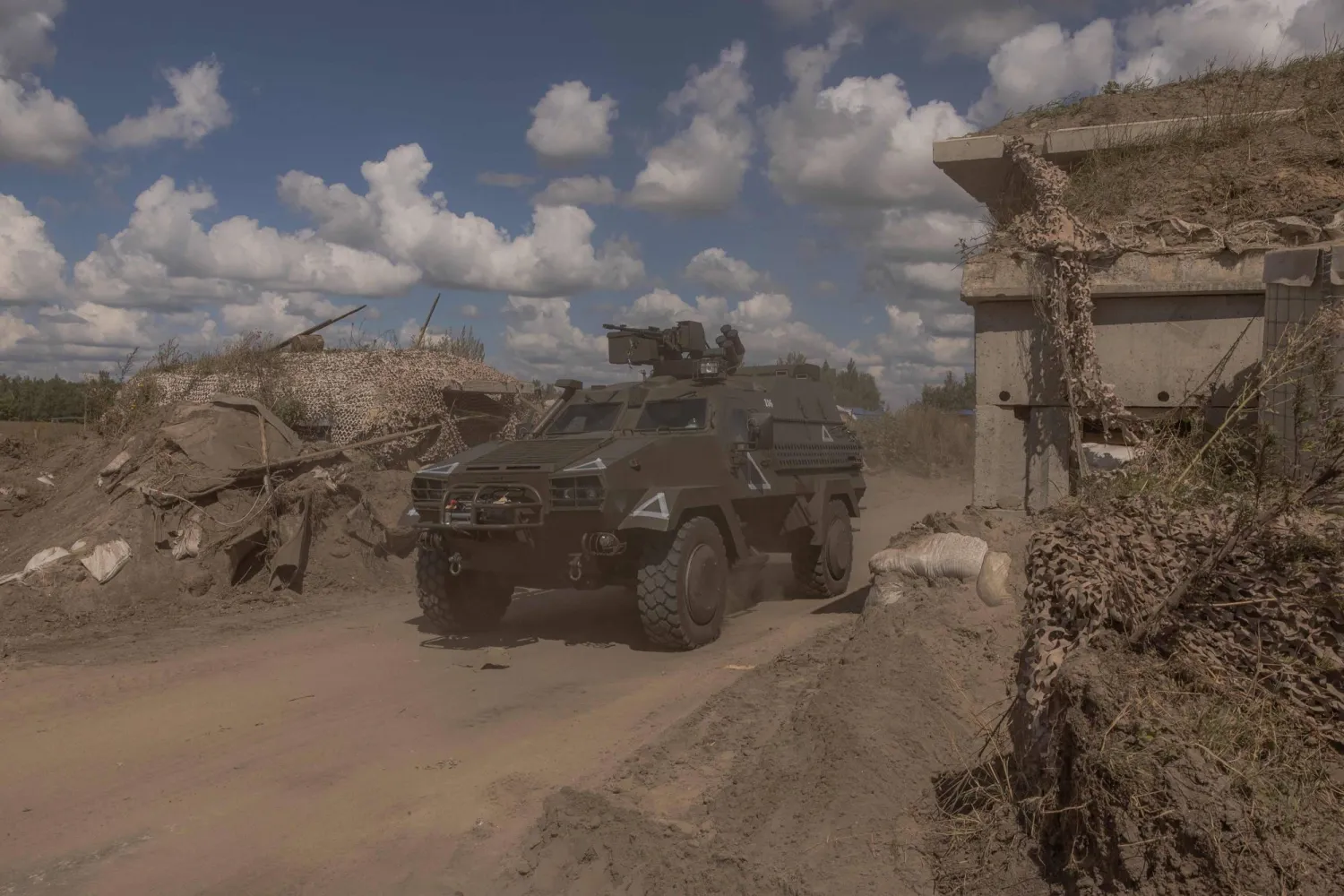Ukrainian President Volodymyr Zelenskyy said Thursday that his country's troops had taken full control of the Russian town of Sudzha, which would be the largest population center to fall under Ukraine's purview since the start of its cross-border incursion more than a week ago.
Although it only had a prewar population of around 5,000 people, Sudzha is the administrative center for the border area of Russia's Kursk region and is larger than any of the other small towns or settlements that Ukrainian forces have reportedly taken since the incursion began Aug. 6.
Sudzha holds a measuring station for Russian natural gas that flows through Ukrainian pipelines to Europe and accounts for about 3% of Europe’s imports. There was no immediate indication of any disruption to the gas flow through the town.
Zelenskyy said a Ukrainian military command office was being set up in Sudzha, which suggests Ukraine might plan to remain in the Kursk region long-term — or just signal Moscow that it might intend to do so. Zelenskyy didn't elaborate on what functions the office might handle, although he said earlier that Ukraine would be distributing humanitarian aid to the Sudzha residents in need.
Russia didn't immediately respond to Zelenskyy's statement, but its defense ministry said earlier Thursday that Russian forces had blocked Ukrainian attempts to take several other communities.
The surprise Ukrainian incursion has caused chaos in the Kursk region, causing the evacuation of more than 120,000 civilians, according to Russian authorities, and leading to the capture of at least 100 Russian troops, according to Kyiv.
Although Russian military bloggers report that Russian reserves that were sent to the Kursk region have slowed Ukrainian advances, questions remain over whether the incursion might force Moscow to move troops from front-line positions in eastern Ukraine, where they've made slow but steady advances this year, to defend embattled Russian territory.
White House national security spokesman John Kirby said Thursday that Russia had withdrawn some forces, including infantry units, from Ukraine and was shifting them to Kursk, but that the US didn't know how many troops were involved.
However, a US official who spoke on the condition of anonymity because they weren't authorized to comment publicly said it doesn't appear the Russians have moved a sufficient number of armored battalions or other types of combat power from the front-line in Ukraine to the Kursk region and will need to shift more troops to repel Kyiv's forces.
Russian military bloggers reported that Ukrainian small mechanized groups have continued to probe Russian defenses. And satellite images analyzed by The Associated Press on Thursday show that a Ukrainian drone attack on Russian air bases damaged at least two hangars and other areas.
Images taken Wednesday by Planet Labs PBC show that two hangars at Borisoglebsk Air Base had been struck, with a field of debris around both. It was not immediately clear what purpose the hangars served. There also appeared to be potential damage to two fighter aircraft at the base.
Separately, at Savasleika Air Base, one burn mark could be seen just off the runway in images Wednesday, though there was no apparent damage to the fighter jets and other aircraft there.
Kursk acting Gov. Alexei Smirnov on Thursday ordered the evacuation of the Glushkovo region, about 45 kilometers (28 miles) northwest of Sudzha. The order suggests that Ukrainian forces were gradually advancing toward the area.
At a facility receiving evacuees, Tatyana Anikeyeva told Russian state television about her ordeal fleeing from the fighting. “We were rushing from Sudzha. … We hid in the bushes. Volunteers were handing out water, food, bread to people on the go. The sound of the cannonade continued without any break. The house was shaking."
Evacuees milled around and waited in long lines for food and other supplies. One man stroked his pet dog and tried to comfort her, while saying that he felt nauseous and had no appetite.
Russia also declared a federal-level state of emergency in the Belgorod region, a day after a regional-level declaration was made for the area. The change in status suggests that officials believe the situation is worsening and hampering the region’s ability to deliver aid.
Under the upgraded declaration, residents who suffer severe health damage will be eligible to receive payments of up to 600,000 rubles ($6,600). Those who experience a loss of property are eligible for up to 150,000 rubles ($1,700), Russia’s Emergencies Ministry said.
Ukraine’s chief military officer, Gen. Oleksandr Syrskyi, said earlier this week that Ukrainian forces had taken 1,000 square kilometers (about 390 square miles) of the Kursk region, though his claim couldn't be independently verified. The contact lines in Kursk have remained fluid, allowing both sides to maneuver easily, unlike the static front line in eastern Ukraine where it has taken Russian forces months to achieve even incremental gains.
Russian officials have pushed back on Syrskyi's territorial claim.
“What’s happening in Kursk is the incursion of terrorist sabotage groups, so there is no front line as such,” Russia's deputy UN ambassador, Dmitry Polyansky, told reporters Wednesday. “There is an incursion because there are forests that are very difficult to control.”
Polyansky called the incursion an “absolutely reckless and mad operation,” and said Ukraine's aim to force Russia to move its troops from eastern Ukraine is not happening because “we have enough troops there.”









